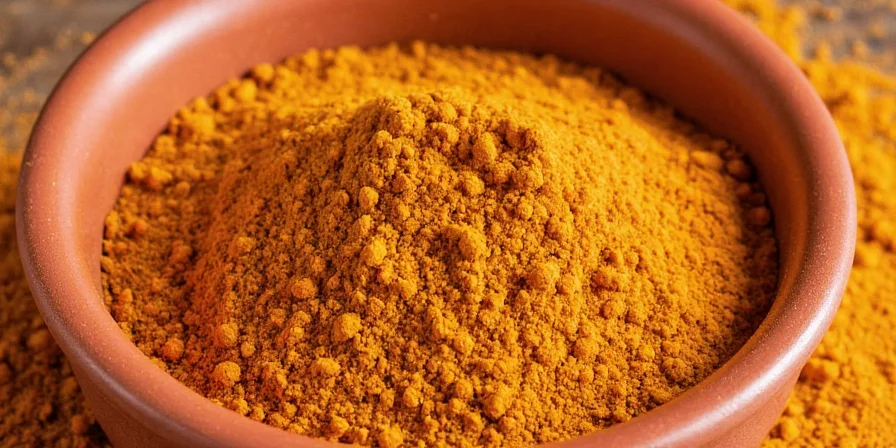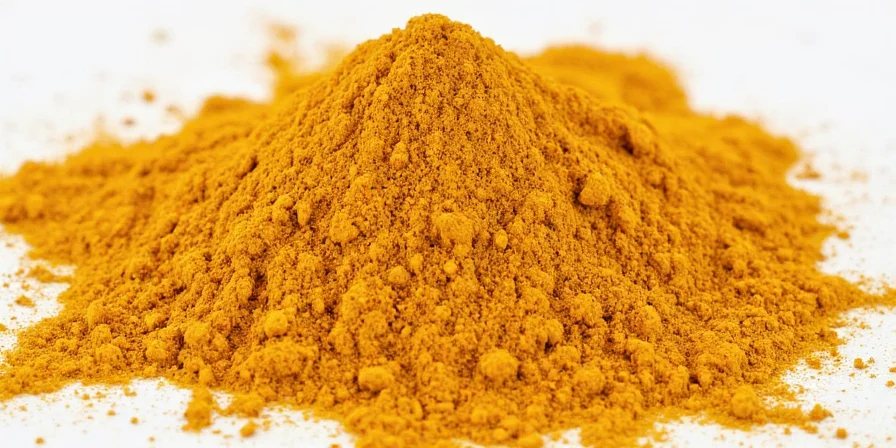Curry spice is a blend of turmeric, coriander, cumin, and other warming spices that creates the signature golden color and complex flavor in Indian and Southeast Asian dishes. This guide reveals exactly what curry spice is made of, providing a simple ingredient list, easy homemade recipe, and practical cooking tips you can use tonight. We'll cut through the confusion about regional variations and help you choose the right blend for your needs.
What Is Curry Spice Made Of? The Essential Ingredients
Curry spice isn't a single recipe but a family of spice blends that share core ingredients. The foundation of most curry powders includes:
- Turmeric - Provides the golden color and earthy base note
- Coriander - Adds citrusy, floral notes
- Cumin - Contributes warm, nutty depth
- Fenugreek - Gives subtle maple-like sweetness
- Black pepper - Essential for flavor balance and turmeric absorption

Simple Homemade Curry Powder Recipe (Ready in 10 Minutes)
Forget store-bought blends with mysterious ingredients. This authentic-tasting curry powder uses common pantry spices:
| Ingredient | Amount | Why It Matters |
|---|---|---|
| Coriander seeds | 3 tablespoons | Provides the citrusy base flavor |
| Cumin seeds | 2 tablespoons | Adds warm, earthy notes |
| Turmeric powder | 1½ tablespoons | Creates the golden color |
| Fenugreek seeds | 1 teaspoon | Contributes subtle sweetness |
| Black peppercorns | 1 teaspoon | Boosts turmeric absorption |
| Mustard seeds (optional) | ½ teaspoon | Authentic South Indian touch |
How to Make Curry Powder in 4 Easy Steps
- Dry toast whole spices in a skillet over medium heat for 2-3 minutes until fragrant
- Cool completely (prevents steam from making powder clump)
- Grind in spice grinder until fine powder forms
- Store in airtight container away from light (keeps fresh for 3 months)
Regional Variations You Should Know
Curry blends differ by region. Here's what to expect:
- Indian Curry Powder: Contains turmeric, coriander, cumin, chili. Best for: Chicken curry, lentil dishes
- Thai Curry Paste: Uses fresh lemongrass, galangal, kaffir lime. Best for: Thai curries, coconut-based dishes
- Japanese Curry: Sweeter blend with apples, less heat. Best for: Japanese curry rice, stews
- Jamaican Curry: Features allspice and scotch bonnet peppers. Best for: Jerk chicken, rice and peas
3 Common Mistakes to Avoid
- Adding curry powder to cold oil - Always bloom spices in hot oil first to release flavors
- Using old spices - Curry powder loses potency after 6 months (test by rubbing between fingers - should smell strong)
- Overheating - Cook curry powder for just 1-2 minutes before adding liquids to prevent bitterness
How to Use Curry Powder Like a Pro
For best results:
- Use 1-2 teaspoons per serving of protein or vegetables
- Add to hot oil first, cook 60 seconds before adding other ingredients
- Pair with coconut milk for creamier curries
- Add a squeeze of lime at the end to brighten flavors
- Store in dark glass jar away from heat and light
Store-Bought vs. Homemade: What's Better?
| Factor | Homemade | Store-Bought |
|---|---|---|
| Flavor | Fresher, brighter | Muted (older spices) |
| Cost | $0.15 per ounce | $0.50-$1.50 per ounce |
| Convenience | 10 minutes preparation | Instant use |
| Customization | Adjust to taste | Fixed formula |
Frequently Asked Questions
What is the difference between curry powder and garam masala?
Curry powder contains turmeric (giving it yellow color) and is used as the main flavoring. Garam masala has no turmeric and is used as a finishing spice. They're not interchangeable in recipes.
Can I use curry powder instead of curry paste?
Yes, but with adjustments: Use 1 tablespoon curry powder plus 1 tablespoon oil for every 2 tablespoons of curry paste called for. You'll miss some fresh herb notes but get similar base flavor.
Why does my curry taste bitter?
Overcooking is the most common cause. Curry powder should only cook in oil for 60-90 seconds before adding liquids. Too much fenugreek (over 1 teaspoon per batch) can also create bitterness.
How long does curry powder last?
Homemade curry powder stays fresh for 3-4 months in an airtight container. Store-bought lasts 6-12 months unopened, 3-6 months after opening. Test freshness by rubbing a small amount between fingers - it should have strong aroma.
Final Tips for Perfect Curries
For the best results with curry spice:
- Bloom spices in hot oil before adding other ingredients
- Add a pinch of sugar to balance acidity in tomato-based curries
- Let curry rest for 30 minutes before serving for flavors to meld
- Store extra curry powder in the freezer for longer shelf life












 浙公网安备
33010002000092号
浙公网安备
33010002000092号 浙B2-20120091-4
浙B2-20120091-4